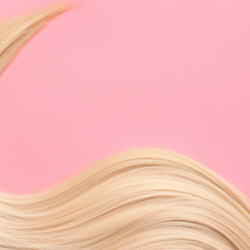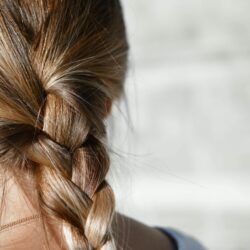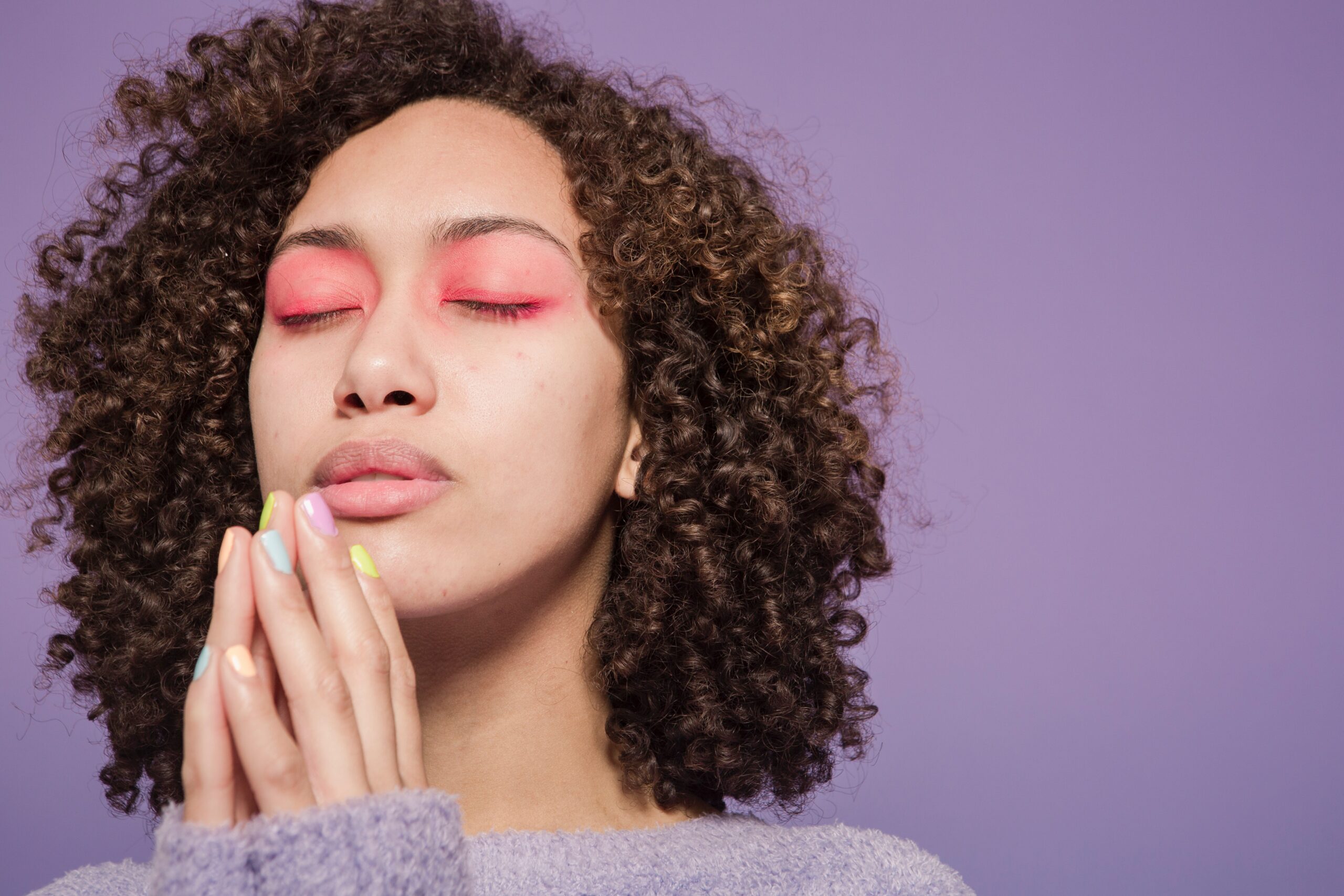Hair loss is a concern for both women and men. The brush full of hair can be maddening, but it doesn’t always have to be.
The lifespan of a hair varies from 3 to 7 years. The hair is constantly in renewal: the hair grows, lives, then dies and ends up falling out. A hair is considered to be dead when it no longer grows, that is, when it no longer produces keratin. But this does not mean that it falls immediately: it will take another 3 months before it comes off the scalp, pushed by the arrival of a new hair.
What is the speed of hair growth?
Hair is the tissue with the highest replication potential in the human body. The rate of hair growth is in the range of 0.5cm to 2cm per month. Obviously, this speed depends on various factors (genetics, sex, age, hormonal problem, etc.) As a rule, optimal hair growth occurs from adolescence until around 30 years old, then decreases around 40 to 50 years old. years.
The life cycle consists of 3 phases; growth, maintenance and rest. At the end of this last phase, hair loss occurs, which is totally physiological and necessary for good renewal (turnover).
Our hair, however, is perpetually exposed to stressors of all kinds such as hormonal variations, lifestyle, incorrect behavior, environment, diet as well as the psycho-physical state of the subject. The hair can therefore easily be stressed, weakened and undergo an early loss of a pathological nature (such as androgenetic alopecia for example).
Hair growth takes place in cycles, themselves made up of phases:
- Anagen: a long growth phase (2 to 6 years)
- Catagen: a brief phase (3 weeks) of transient apoptotic phase
- Telogen: a short resting phase (2 to 3 months)
At the end of the resting phase, the hair falls out (catagen phase). Normally around 50-100 hairs reach the end of the resting phase and fall out each day. When new hair begins to grow in the follicle, the cycle begins again.
Growth cycle disorders include:
- Anagen effluvium: an interruption of the growth phase causing abnormal loss of anagen hair
- Telogen effluvium: significantly more than 100 hairs / day entering the resting phase
What are the causes of hair loss?
Hair is a very good indicator of deficiencies, especially mineral deficiencies.
- Iron deficiency:
Iron is vital for the nutrition and oxygenation of the hair’s reproductive cells. A lack of installed iron can lead to thinner, brittle hair and diffuse and continuous hair loss.
- Vitamin D deficiency:
In addition to its role in the transport of calcium, vitamin D is involved in many other physiological processes, in particular that of hair growth. A link has been clearly established between vitamin D deficiency and hair loss.
- Zinc deficiency:
This trace element is a powerful antioxidant that contributes to hair growth. Zinc deficiency can be a factor promoting hair loss and a dry scalp.
- Magnesium deficiency:
Magnesium is proven to fight against the inconvenience of sweat which changes the pH of your scalp causing irritation and the possibility of developing dandruff or even, seborrhea dermatitis which can lead to considerable hair loss.
- Calcium deficiency:
The body needs to combine vitamin D with calcium in order to integrate the latter properly. If you are lacking in one of these nutrients, the other might be at very low levels as well.
- A deficiency in group B vitamins:
B vitamins are your best allies for supple, shiny and healthy hair. More resistant, the hair falls out less and grows faster. In case of deficiency, they become dry, rough and brittle. The hair loss is then accentuated and dandruff can appear.
- Tobacco, coloring as well as repeated exposure to the sun:
Tobacco responsible for many health problems contains toxic and carcinogenic products. In both men and women, tobacco can have disastrous consequences on the hair. Scientific studies have shown that smoking can be a cause of baldness. To have healthier hair, quitting smoking is a difficult but important decision to make.
Regular coloring can, in some cases, cause baldness. As the risk of damaging the scalp is significant, this can lead to a loss of density and dull, spiky hair.
In very small doses, the sun is excellent for all types of hair. Via vitamin D, it acts on the hair’s life cycle and allows keratin to develop faster and more vigorously. But at too high a dose, the consequences can be harmful. Indeed, excessive exposure to the sun accelerates the negative action of free radicals on the tissues surrounding the hair follicles. Since rust attacks iron, these free radicals attack the perifollicular collagen, causing it to lose its flexibility and thus risk locking the hair roots in a shackle. Another reason, which can come in addition to the compression of the roots and the decrease in their activity!
If your hair already tends to thin out or fall out easily, beware of the sun and know that fall hair loss can be quintupled by careless summer.
- A poor diet :
An unbalanced diet or eating disorders can lead to insufficient nutrient intake, and eventually lead to hair loss. Make sure you eat a healthy, balanced diet. Strong and healthy hair needs nutrients, which are essential to ensure the correct physiological cycle of all tissues, especially if the proliferation is high like the hair bulb. A constant supply of these nutrients must therefore be guaranteed by the blood.
- The change of season:
Like trees, our hair is sensitive to environmental changes: the transition to autumn is a period of radical change in climate and therefore in humidity, sunshine, outside temperature … This change influences the rhythm and the speed of the hair renewal cycle, which can then drop in greater numbers.
A fall is thus observed which concerns the whole of the hair but has little impact on the overall volume of the hair. This fall lasts a maximum of one to two months. Beyond that, it is necessary to consult to determine if there is no other cause of hair loss.
- Hairstyles that are too tight:
Some hairstyles, such as braids that are too tight, can promote hair loss in women because of too much prolonged traction on the roots. This is called traction alopecia. Wearing a bun or ponytail every day can lead to long-term hair loss. This is why ballet dancers accustomed to beautiful dance updos often suffer from this ailment. To remedy this, be sure to vary your hairstyles, never over-tighten them, and loosen your hair regularly.
- Hormonal changes:
Hair loss after childbirth is quite normal. It is due in particular to the hormonal upheaval and the fall in estrogen concentration. But this fall is only temporary and lasts only a few months. Hair loss can also be associated with the birth control pill, when you start, stop or change it.
Some naturopathic tips to limit hair loss:
- Avoid too aggressive shampoos, coloring, discolorations, straightening and perms which attack the scalp and promote hair loss
- Eat a balanced diet to avoid the nutritional deficiencies that cause hair loss. Diet should be diversified to avoid mineral deficiencies, especially iron deficiency. Give pride of place to proteins, which contain the two sulfur-containing amino acids (methionine and cysteine) necessary for the synthesis of keratin. Also eat foods rich in zinc, essential for the beauty of integuments (nails, hair, skin and hair)
- Cut Down or Stop Smoking: Tobacco slows hair growth by reducing the absorption of many nutrients essential for keratin synthesis
- Regularly massage your scalp to stimulate microcirculation
- Avoid using the hair dryer at too high a temperature
- Stop stress! Relax, stress is bad for your health and can trigger or worsen hair loss
Medicinal plants and hair loss:
Indicated in the prevention of hair loss, horsetail helps to strengthen skin appendages and promote growth thanks to its richness in silica. What makes her a remineralizing plant.
This essential oil regulates the production of sebum and stimulates the microcirculation of the scalp in cutaneous use. It is indicated in hair loss.
Nettle is renowned for its reddening properties. It activates the hair metabolism and is used to fight against hair loss.
Rich in omega 6-9 and vitamins A and E, this oil slows down hair loss carefully mixed with clay as a hair mask.
If the hair loss lasts more than 6 months, if it changes the volume of the hair or the implantation of the hair or if it is mainly localized above the skull, it is advisable to consult a dermatologist. This pathological fall is due to an imbalance in the vital functions of the hair, but only the doctor will be able to find the medical causes (traction alopecia, straightening, androgenetic alopecia) and therefore prescribe the right treatment.







